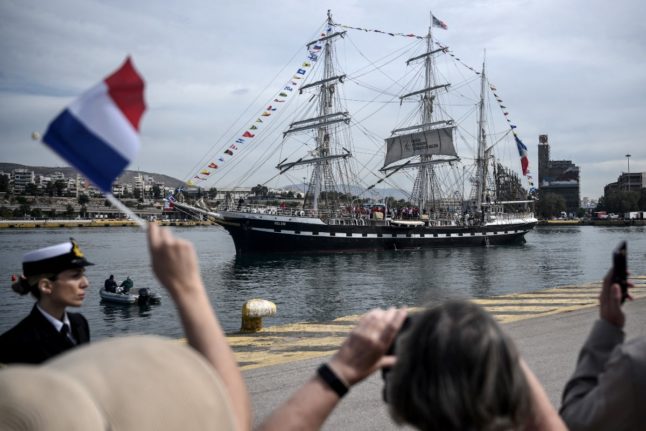Fan Zones and bars/cafés
As bars and cafés reopen, watching sport on the big screen with mates and a beer or two is again possible, but with quite a lot of health rules still in place.
France’s Sports Minister Roxana Maracineanu has said that Fan Zones – so popular during the 2018 World Cup – could open up again for the Euro2020, but under strict health conditions.
These included:
- A maximum customer number of 65 percent of the venue’s normal capacity up to a maximum of 5,000 people;
- Seated viewing only;
- Covid-19 health passes required for any fan zone that has more than 1,000 people.
Some towns and cities have plans in place to host Fan Zones from the outset. But a number of cities, including Paris, Lens, Nîmes and Avignon, have decided not to bother opening any Fan Zones until the quarter-final stage of the competition in July – after current Covid-19 public health restrictions are eased further.
Other cities, including Bordeaux and Strasbourg have yet to make their decisions.
But it is still wise to keep an eye on local restrictions. It has been reported that authorities in Rennes have ruled out the possibility of bars positioning large-screen TVs on their terraces to show Euro matches.
On June 30th – health situation permitting – restrictions will ease again and local officials will be able to set their own crowd levels based on the local health situation, while respecting good public health practices and social distancing. Some areas have therefore delayed making decisions until the end of June.
In stadiums
In May, sports stadiums across France welcomed back limited numbers of fans for the first time since October – but with strict rules.
Until at least June 30th, stadiums are open to seated fans, but with a limit of 65 percent capacity up to a maximum of 5,000 supporters – all wearing masks and all those aged 11 or over with a pass sanitaire.
The 11pm curfew also remains in place and applies to sports fans too.
A last-minute exemption for tennis fans watching a particularly tense men’s semi final at the French Open (which apparently came right from the top) was, we are told, a one-off and will not become the rule.
That means fans watching evening matches may be forced to leave before the end to make it home on time.
After June 30th – health situation permitting – the curfew is scrapped and the national upper limit of 5,000 people for outdoor venues should be lifted, but public health requirements will remain.
Amateur sport
Gyms and swimming pools reopened on June 9th, with capacity limits, but what about group sports at an amateur level?
Under current rules, up to 25 adults may practice a non-contact sport together outside. Competitions held outside may involve up to 500 adult amateurs for non-contact sports only.
Standing spectators are generally not allowed – although groups of 10 are permitted in public spaces. As with professional sport, the 65 percent or 5,000 limit on seated spectators is also maintained, with a health pass required for those aged 11 or over.
Assuming the health situation continues to improve adequately, indoor venues hope to be able to return to full capacity from June 30th, when restrictions are next due to ease.
Contact sports could again be allowed for adults, with decisions taken on a local level.



 Please whitelist us to continue reading.
Please whitelist us to continue reading.
Member comments